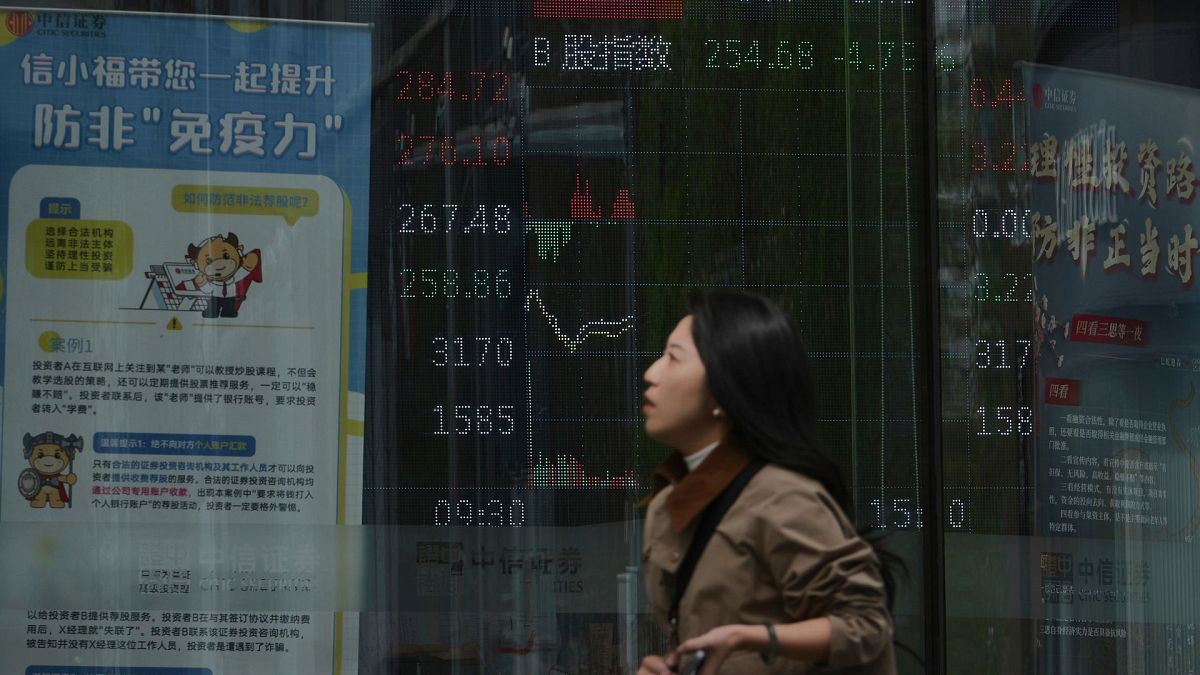China has accused the United States of economic bullying, protectionism and unilateralism, following Washington’s imposition of tariffs on Chinese imports.
Beijing also urged American firms, including Tesla, to “take concrete actions” to help resolve the dispute.
Foreign Ministry spokesperson Lin Jian told reporters that the “America First” approach was harming global production, supply chains and economic recovery.
The remarks come after US President Donald Trump announced a further 34% tariff on Chinese goods last week, following earlier rounds of 10% tariffs in February and March.
Trump linked the new measures to China’s alleged role in the fentanyl crisis.
The raft of tariffs caused Asian stocks to plunge on Monday to lows not seen in decades.
The benchmark Hang Seng Index in Hong Kong closed down 13.22% on Monday, after it nosedived by as much as 13.74% during the day’s trading.
The Shanghai Composite was down more than 8% while Japan’s Nikkei closed down by 7.8%.
Beijing responded by also implementing a 34% rate on select US goods and unveiling a range of countermeasures.
These included suspending imports of sorghum, poultry and bone meal from some American companies, introducing new export controls on rare earth minerals and filing a lawsuit with the World Trade Organisation.
On Monday, the Communist Party’s official newspaper, the People’s Daily, asserted: “The sky won’t fall,” and added that “faced with the indiscriminate punches of US taxes, we know what we are doing and we have tools at our disposal.”
Lin did not comment on whether Chinese President Xi Jinping would meet Trump to broker a deal, directing questions to other government departments.
“Pressure and threats are not the way to deal with China. China will firmly safeguard its legitimate rights and interests,” he said.
Over the weekend, Chinese officials met with representatives from Tesla, GE Healthcare and other American companies.
Vice Minister of Commerce Ling Ji told 20 visiting companies that the US was to blame for the current trade tensions.
“The root of the tariff problem is in the US,” he said. “We hope the American companies can address the problem at its root, issue reasonable statements, take concrete actions and work together to safeguard the stability of the global supply chain.”
Ling also reiterated that China remains open to foreign investment and assured that investing in China is safe.

